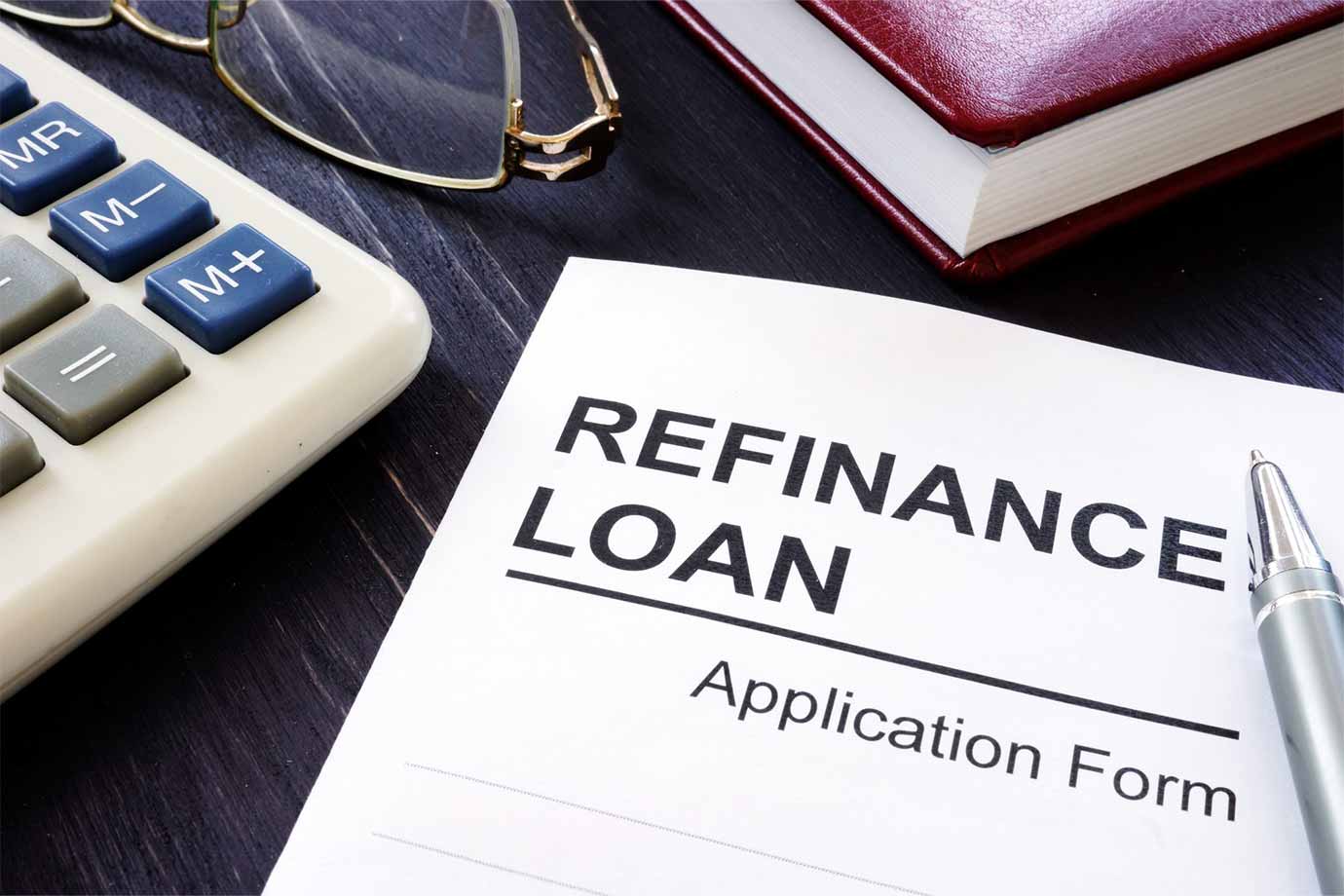
How to Refinance a Personal Loan?
BadCredify makes it possible to refinance a personal loan at the best terms. Replace your current loan with a new personal loan at a lower interest rate.
Written By:
Edited By: Janice Myers
Posting Date:
You have definitely heard about refinancing a mortgage and other high-interest debts with a personal loan. This borrowing option usually provides one of the lowest interest rates, which makes it a cheaper solution than other types of loans.
Do you know that you can also replace your existing personal loan with a new one? Refinancing is an excellent idea if your credit score has improved, as you may be able to take a new loan at a lower interest rate and longer loan term. Understanding how to refinance a personal loan and what benefits and drawbacks it brings can help you make more informed decisions.
5 Best Lenders to Refinance a Personal Loan
★★★★☆

Est.APR
8.99% – 25.81%
Loan amount
$5,000 – $100,000
Min Score
None
More About
PROS
- Low interest rates
- Co-borrowers are allowed
- No prepayment penalties
- Flexible loan amounts
- Wide repayment terms
- No origination fee
CONS
- Good credit is required
- Late fees might apply
- No co-signer option available
- No physical branches
REQUIREMENTS
- Be at least 18 years old
- Prove your US citizenship or permanent residence
- Provide your bank account information and social security number
- Show your monthly income by providing pay stubs, tax forms, or bank statements
- Provide an active email address and phone number
WHO IT’S FOR
Applicants with good to excellent credit scores who want to consolidate debt, make major purchases, and cover significant medical bills.
FEES
- Optional fees (up to 6%)
Editor’s Thoughts
At SoFi, you can apply for personal loans, reaching $100,000, which is enough to consolidate almost every old loan. The company requires a good or excellent credit score from applicants or their co-borrowers but does not charge an origination fee and offers discounts on interest rates.
★★★★★

Est.APR
6.40% – 35.99%
Loan amount
$1,000 – $50,000
Min Score
300
More About
PROS
- Quick access to loan funds;
- No prepayment penalties;
- Flexible monthly payments;
- Beyond credit score verification (soft credit check);
- Flexible loan amounts.
CONS
- Origination fees up to 10%;
- High annual percentage rate;
- Co-signers aren’t allowed;
- Limited repayment loan terms.
REQUIREMENTS
- Be at least 18 years old;
- Prove your US citizenship or permanent residence;
- Provide your bank account information
- Show your monthly income (at least $2,000 monthly income) by providing pay stubs, tax forms, or bank statements;
- Have fair credit (at least 300);
- Provide an active email address and phone number.
WHO IT’S FOR
Poor credit borrowers who can’t qualify for traditional personal loans.
FEES
- Origination fees up to 10%;
- $15 late fee
- $15 NSF fee
Editor’s Thoughts
Upstart is a platform where even fair credit borrowers can get approved for personal loan refinancing. There are no hard credit checks through major credit bureaus. You only need to have an income of at least $2,000 per month to qualify for personal loans on the platform.
★★★★☆

Est.APR
8.49% – 35.99%
Loan amount
$1,000 – $50,000
Min Score
Doesn’t specified
More About
PROS
- No prepayment penalties;
- Multiple rate discounts;
- Next-day funding;
- The due date may be changed;
- Direct payments for debt consolidation.
CONS
- APRs may be high;
- Origination fees are charged;
- Late fees may be applied.
ELIGIBILITY REQUIREMENTS
- Be a U.S. citizen, a permanent resident, or living in the U.S. on a valid visa;
- Be at least 18 years old (19 in Alabama and some other states);
- Give a working email address;
- Provide valid bank account details;
- Confirm a sufficient monthly income to cover your loan payments.
WHOM IT SUITS
Fair-credit borrowers who need the money quickly.
FEES
- Origination fees: 1.85% to 9.99%;
- Late payment fees: $10;
- Non-sufficient funds fees: $10 per payment returned.
Editor’s Thoughts
Even a poor credit history is not a barrier to obtaining a loan amount of up to $50,000 at Upgrade. If approved, the money may be in your bank account as soon as the next business day. While origination fees can reach 10%, the company does not charge prepayment penalties.
★★★★☆

Est.APR
9.116% – 29.99%
Loan amount
$2,000 – $45,000
Min Score
640
More About
PROS
- Low annual percentage rate;
- Wide range of available loan amounts;
- Same-day funding in some circumstances;
- Accessible for fair credit borrowers.
CONS
- High origination fee (up to 9%);
- No cosigners are allowed for joint loans;
- It is not available in all states.
- Limited term lengths range from 36 to 60 months.
REQUIREMENTS
- Be at least 18 years old;
- Prove your US citizenship or permanent residence;
- Provide your bank account information
- Show your monthly income (at least $2,000 monthly income) by providing pay stubs, tax forms, or bank statements;
- Have fair credit (at least 640);
- Provide an active email address and phone number.
WHO IT’S FOR
Poor credit borrowers who need to make a significant debt consolidation.
FEES
- Origination fees of up to 9%
- $15 late fee
- $15 NSF fee
Editor’s Thoughts
With Rocket Loans, you can get the necessary loan amount within 24 hours after approval. While the repayment term in the company ranges from 36 to 60 months, you will not be charged a prepayment penalty for returning the debt sooner. An origination fee does not exceed 9%.
★★★★★

Est.APR
7.99% – 24.99%
Loan amount
$2,500 – $40,000
Min Score
660
More About
PROS
- Long 84-month period
- Three options for repayment help
- High scores of customer satisfaction
- No origination fees
- Perfect for debt consolidation
- Competitive interest rates
CONS
- Low available loan amounts
- Charges a $39 penalty for late payments
- Harder eligibility requirements
- No co-borrower permitted
REQUIREMENTS
- Be at least 18 years old
- Prove your US citizenship or permanent residence
- Provide your bank account information
- Show your monthly income (at least $25,000 annually income) by providing pay stubs, tax forms, or bank statements
- Have fair credit (at least 660)
- Provide an active email address and phone number
WHO IT’S FOR
Borrowers with fair credit scores who want to consolidate debt.
FEES
- Late fee of $39
Editor’s Thoughts
Discover is an often chosen place for debt consolidation. The maximum repayment term at the platform reaches 84 months, which allows you to divide your personal loan amount at lower monthly payments and make your debt more manageable. Origination fees and prepayment penalties are not being charged.
BadCredify evaluates lenders based on more than 70 rating criteria, including interest rates, repayment terms, eligibility requirements, fees, consumer experience, affordability, and more. Find out more about our full methodology.

What Is Personal Loan Refinancing?
Personal loan refinancing is replacing your current loan with a new one that usually has a lower interest rate, a more extended repayment term, or a more manageable monthly payment. You can apply for a new loan either with your current lender or another one, and immediately after getting funds, return your actual debt. Then, you should focus on paying off your new loan.
When Should You Refinance a Loan?
Personal loan refinancing is not always a necessary procedure. There are specific situations where replacing an existing loan with a new one can be beneficial.
- Your credit score has improved. As a rule, people with lower credit scores get higher interest charges and less favorable loan terms. Improvements in your credit history are a great chance to save money through refinancing a personal loan. Now, you can obtain a loan with a longer repayment period and a more affordable interest rate.
- You want to repay the loan faster. Personal loan refinancing is an excellent option for those who can afford to make larger loan payments. If you want to shorten your current loan term, apply for a new loan with higher monthly payments.
- Your monthly payment is too high. If your existing loan requires unaffordable monthly payments, it may be a great idea to find other lenders with a longer repayment term and a lower monthly payment.
- You prefer a fixed interest rate. Making on-time payments for a personal loan is problematic when you don’t know the exact amount you need to pay monthly. Refinancing a personal loan allows you to replace a variable interest rate on your loan with a fixed one and count on a specific sum every month.
- You need a larger loan. If the existing loan sum is not sufficient, personal loan refinancing enables you to get a more significant amount that can reach $100,000.
When a Personal Loan Refinance Is Not Worth It?
Even if you have heard a lot of cases of beneficial refinancing a personal loan, it does not mean you need to do it. It is essential to currently analyze your situation to ensure a refinanced loan is necessary. In the following cases, you should not take a new loan to repay money to your current lender:
- You will not get better terms. Does refinancing a personal loan make any sense if it does not provide you with lower interest charges or a more convenient loan term? Probably not. So, analyze your current loan and compare its terms with those offered by other lenders.
- You are close to the end of your repayment timeline. If you have almost repaid your current personal loan, taking a new loan will just lead to the extension of your debt, and you will spend more money at an interest rate.
- You don’t owe much. You don’t need to refinance a personal loan when the amount you have to return is really small. You will probably be charged an origination fee and other additional fees for a new loan in addition to an interest rate, which can make refinancing a personal loan longer and more costly.
How to Refinance a Personal Loan?
If your situation requires refinancing a personal loan, follow these steps:
#1. Determine Your New Loan Amount
The first step required for refinancing personal loans is to decide how much you need to borrow. It is essential to consider factors like origination fees, interest rates, and other charges in addition to the origination loan amount.
#2. Check Your Credit Report and Credit Score
Checking your credit score is a crucial step before deciding to refinance a personal loan. It will help you to make a decision on whether you should take a new loan. You can obtain personal loans at a lower interest rate only if your credit score has improved. Otherwise, the refinancing process may just become a waste of your time.
To evaluate your current situation with a credit score, you can request a free credit report from three major credit agencies (Equifax, Experian, and TransUnion) via AnnualCreditReport.com.
#3. Shop Around for a New Loan
Before taking a new loan, make sure to compare all the available options. While there are many banks, credit unions, and online lenders offering personal loans, finding one with convenient monthly payments and reasonable interest and fees without hidden costs may be a difficult task. Multiple lenders will charge an origination fee and require other extra payments, while others don’t need them. Furthermore, many financial institutions perform a hard credit check to make a loan decision based on your credit score. Financial experts often recommend choosing providers that don’t hurt your credit with hard inquiries and perform only soft credit pulls.
#4. Complete the Application
After comparing personal loans from different lenders and selecting a provider with the most suitable terms, you can start your application process. Submit the required documentation (Social Security number, bank statements, pay stubs, tax returns, etc.), provide your personal and bank account information, and send the request.
#5. Get Your Loan Funds
If a lender approves your request, you will likely get the money within up to one week. Most online lenders will provide you with the funds on the same or the next business day. The cash is usually deposited directly into your bank account.
#6. Pay Off Your Original Loan
The first thing you should do after getting a new loan is to return the old one. To complete this task, contact your previous lender and discuss all the details with them. Once you pay off the original loan, ask the financial institution for documentation confirming this, as the loan may be shown as being paid in your credit report even 30-45 days after it is returned.
#7. Begin Making Payments on Your New Loan
After you confirm your minimum monthly payment amount and an interest rate with your new lender, you can start making payments for your refinance loan. It is essential to pay on time to avoid hurting your credit score through late or missed payments. Enrolling in autopay is an excellent way to protect yourself from missing a payment.
Get A Personal Loan For Your Needs
- Applying does not affect your credit score
- Reasonable interest rates
- Safe and secure application

Advantages of Refinancing a Personal Loan
The most significant benefits you get if you replace your current loan with a new one include the following:
- Lower interest rate. If your credit has improved since taking a previous loan, you have a chance of borrowing a new loan with lower interest.
- Extended repayment period. Extending loan terms is an excellent option for those facing difficulties with making monthly payments.
- Switching rates. Many borrowers struggle with unpredictable loan payments caused by variable interest charges. Refinancing allows you to switch to fixed interest.
- Faster loan payoff. Individuals often use personal loan refinancing to become debt-free faster. They make higher monthly loan payments and repay the debt more quickly.
Disadvantages of Refinancing a Personal Loan
Personal loan refinance is not an option for everyone. It may come with the following pitfalls:
- Additional fees. When you take a new loan, you should be prepared for charges from your new lender. They can even make your refinancing unprofitable.
- Credit score impact. Personal loan refinancing usually negatively affects your credit report. Although the impact is small and short, it still exists.
- Research and application time. Researching lenders, comparing their terms, and completing application processes takes time. If your personal loan is close to the end, refinancing may be unnecessary.
The Bottom Line
Refinancing a personal loan should be a well-considered decision, taking into account many factors. Make sure that your new loan will really save you money. It should come with a lower, fixed interest rate, a more convenient repayment term, and other advantages. Generally, such benefits are available for borrowers with good credit scores, so if your credit has not been improved since the previous loan, refinancing may not make any sense.
Methodology
BadCredify financial experts have carefully analyzed and compared a few dozen lending companies providing personal loans. We completed application processes On the website of every company and reviewed clients’ opinions about the providers at truthful resources.
Based on the criteria, such as interest rates and fees, loan amounts and terms, customer experience, eligibility requirements, and deposit speed, we have determined the best five places to refinance personal loans.
FAQ
If you are experiencing financial hardship, your current lender may agree to loan modification. Financial institutions are not interested in your default, so it is possible to get an extended repayment term or a lower interest rate instead of refinancing your loan.
Yes, it could. Refinancing can hurt borrowers’ credit scores, but the dip is usually slight and does not last long. In most cases, your credit will bounce back within several months.
Yes. You can get a new loan and use this money to return your existing debt. Then, you will repay your new personal loan.
